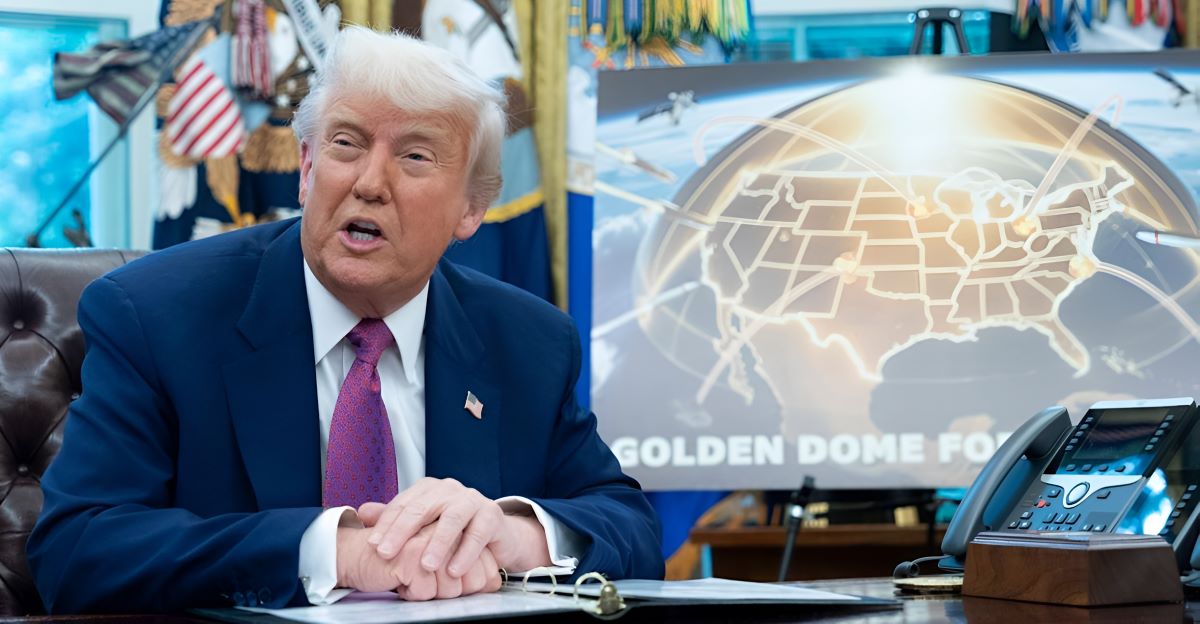
On May 27, 2025, Donald Trump stunned global markets and diplomatic circles with an ultimatum aimed directly at Canada. Announcing the $175 billion “Golden Dome” missile shield, Trump gave Ottawa two options: join the system for $61 billion as a sovereign nation—or get it free by becoming the 51st U.S. state. Beneath the military framing lies a bold economic threat.
With $762 billion in annual trade at stake, Trump’s gambit risks unraveling the world’s longest undefended border and shaking the foundations of North American commerce. What began as a defense proposal now reads more like an economic power play—and the ripples are already spreading.
A Tariff War Wrapped in a Defense Deal
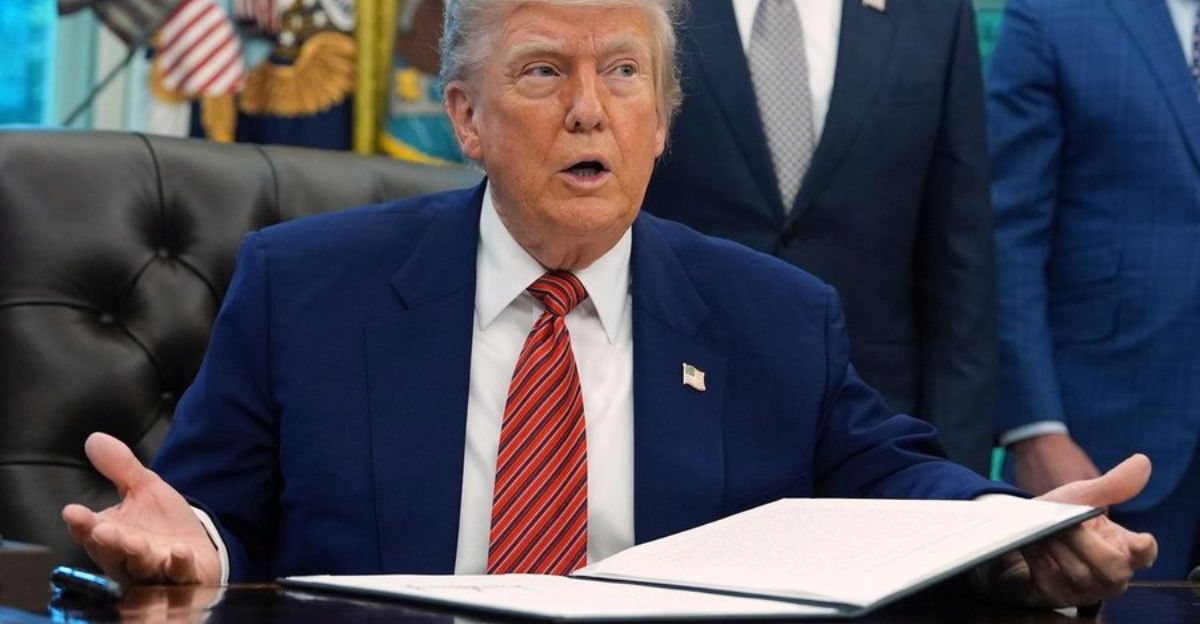
This wasn’t a spontaneous offer, it’s part of Trump’s broader trade offensive. After imposing 25% tariffs on Canadian imports on February 1, Canada’s economy began spiraling toward recession. Now, Trump is using the Golden Dome, a hypersonic missile shield targeting threats from China and Russia, as leverage.
By offering it as “free” protection through annexation, he’s recasting security as a tool of economic coercion. Canada’s leadership is rattled. Scrambling for options, Prime Minister Mark Carney is weighing a pivot to Europe’s ReArm defense bloc.
For now, Canada’s independence hinges not just on military strength, but on surviving Trump’s escalating economic squeeze.
Consumers Already Feel the Pressure
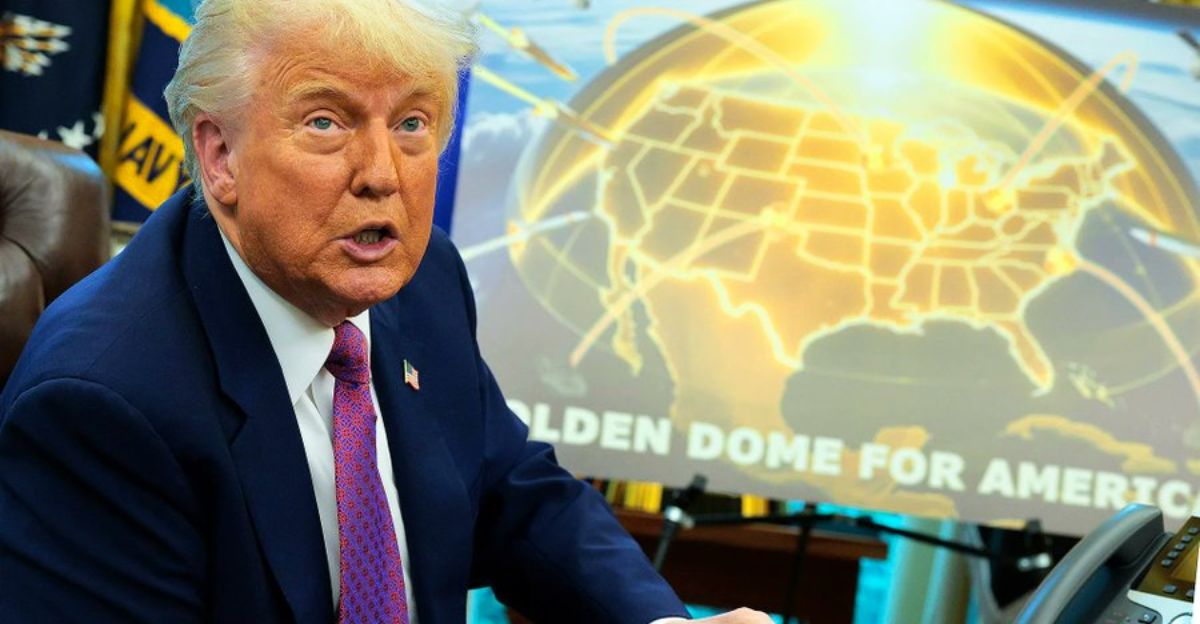
The impact on households has come fast and hard. Canadian families are seeing price spikes on U.S. goods, produce, appliances, and electronics are all climbing. But the psychological toll may be worse. “Buy Canadian” campaigns are surging as pride and fear mix.
South of the border, Americans aren’t spared. Lumber costs are soaring as Canadian supplies get caught in the crossfire, raising housing prices. Energy imports are now a political tool, not a market force. The result? Widespread anxiety. Big-ticket purchases are being delayed. What once felt like a stable cross-border economy now feels volatile, politicized, and deeply personal.
Industries Enter Emergency Mode
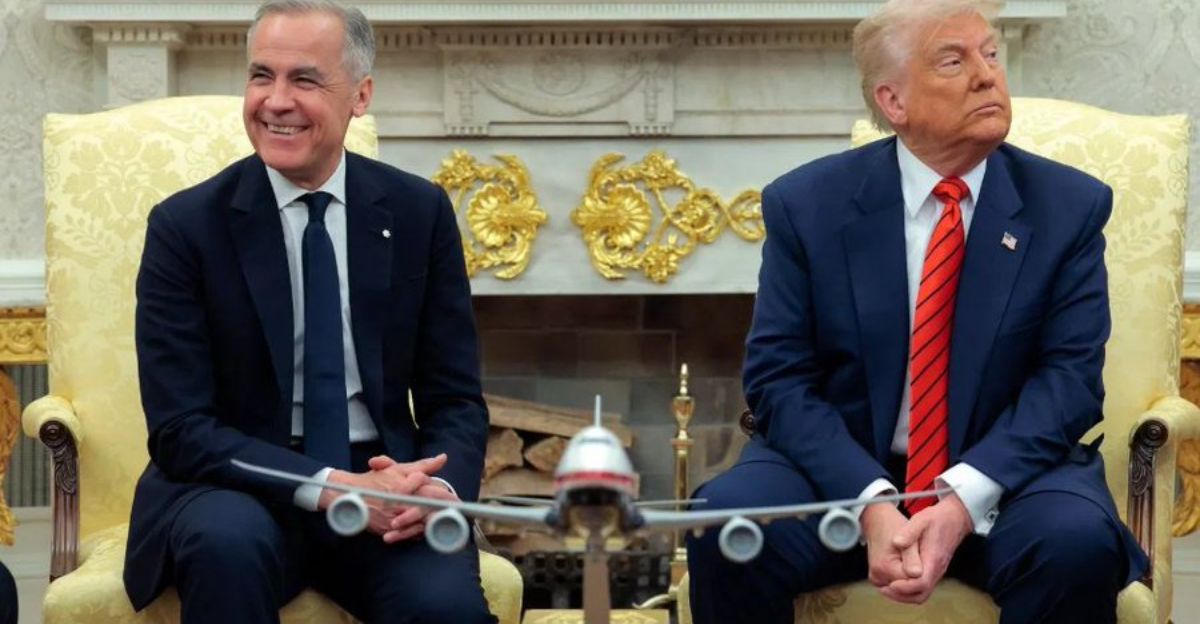
Defense firms like Lockheed Martin and SpaceX see a gold rush in the Golden Dome’s price tag. But the rest of North American industry is bracing for crisis. Automakers, long dependent on Canadian components, are staring at a potential supply chain collapse.
Canada builds just 14 car models but buys 325—any disruption shatters the ecosystem. Energy companies are on edge. Deloitte warns that ongoing tariffs could slash Canadian oil and gas output by 6.8% through 2030. The private sector is moving fast: Canadian firms are eyeing Europe, while U.S. businesses push Washington to stop the bleeding before it turns catastrophic.
Economic Trust Is Fracturing
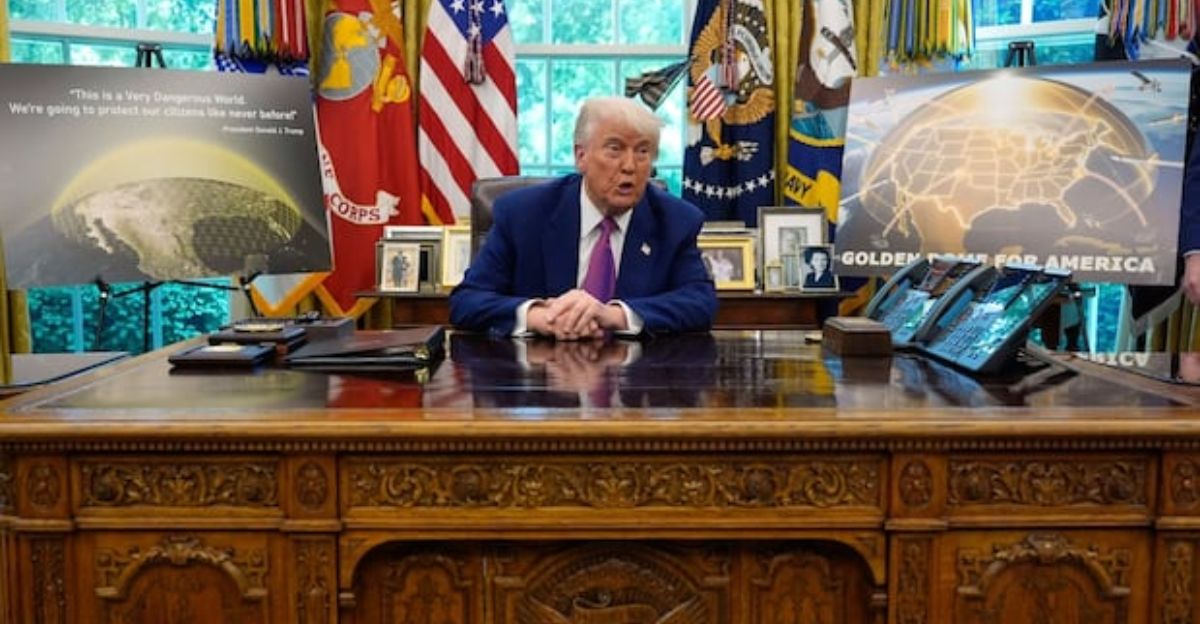
A deeper shift is underway: trust between North American businesses is breaking down. In March, over 40 Canadian business leaders met with U.S. officials, warning that tariffs were “detrimentally impacting” trade. This isn’t just about profit margins, it’s about long-term viability. Once tightly woven, cross-border operations are unraveling.
Some firms are exploring “decoupling strategies,” reducing U.S. exposure altogether. Canada’s drive to join ReArm Europe by July 1 signals an urgent search for new alliances. What’s breaking isn’t just supply chains—it’s the very belief that neighbors can count on each other. That psychological shift may prove more lasting than any tariff.
Global Competitors Seize the Opportunity
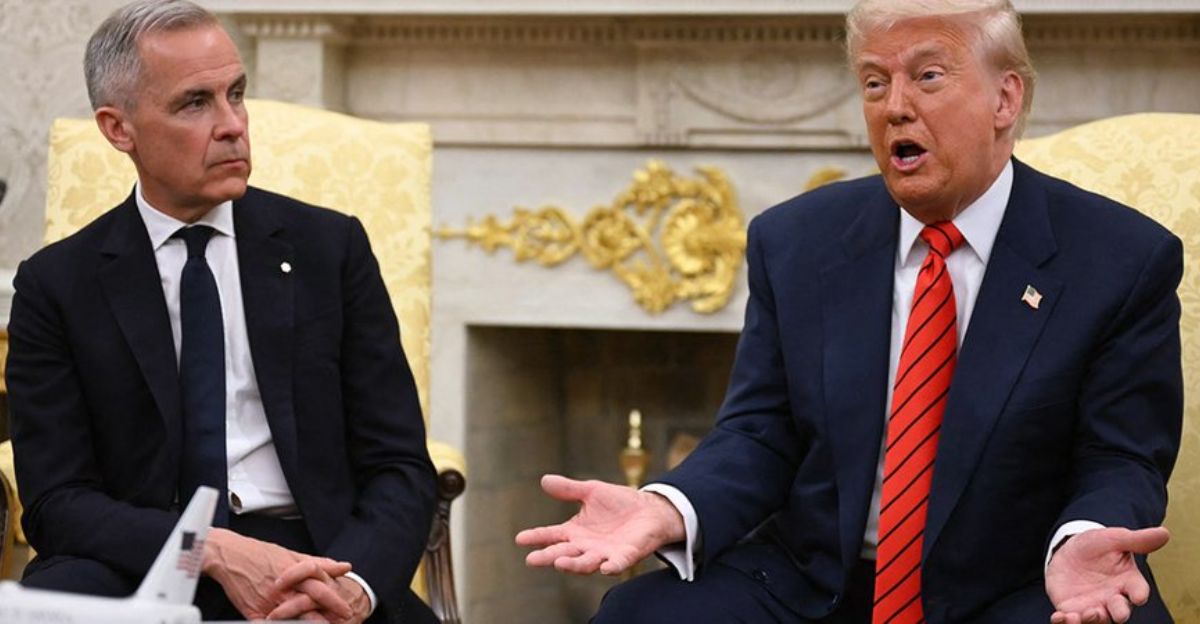
As North America fractures, rivals are moving in. Beijing has already accused Trump’s Golden Dome of “heightening the risk of space becoming a battlefield” and “fueling an arms race”, but privately, they’re thrilled America is isolating its closest ally, and Europe is stepping in. The UK’s ReArm Europe is courting Canadian firms seeking new partners. This isn’t just a trade pivot, it’s a reshaping of Western alliances.
Canada, once firmly in the U.S. orbit, is now weighing deeper ties with Europe. Trump’s pressure campaign may end up backfiring, accelerating geopolitical realignments that favor America’s adversaries. The more he pushes, the more Canada looks elsewhere.
The Human Cost Grows Clearer
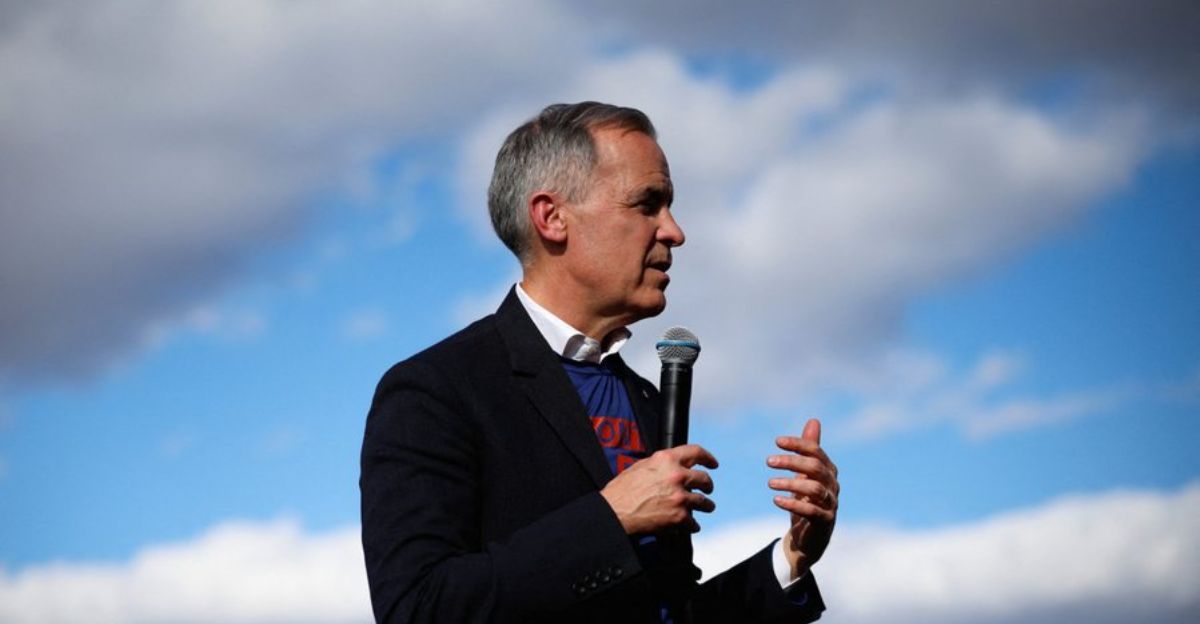
Trump claimed Canada is “considering the offer.” Ottawa’s reply was swift and stern: “not for sale, ever.” But the economic pain is real. Quebec’s premier warns tariffs could cost 100,000 jobs in that province alone. American companies aren’t happy either. “Without reconciliation, Golden Dome’s financing may collapse,” one industry executive told Reuters.
The uncertainty is creating chaos in boardrooms and households alike. Parents are postponing home purchases. Workers fear layoffs. Families are caught in a political chess match where the stakes are their livelihoods. The fallout isn’t theoretical anymore—it’s hitting paychecks, supply chains, and daily life on both sides.
Royal Rebuke, Political Fallout
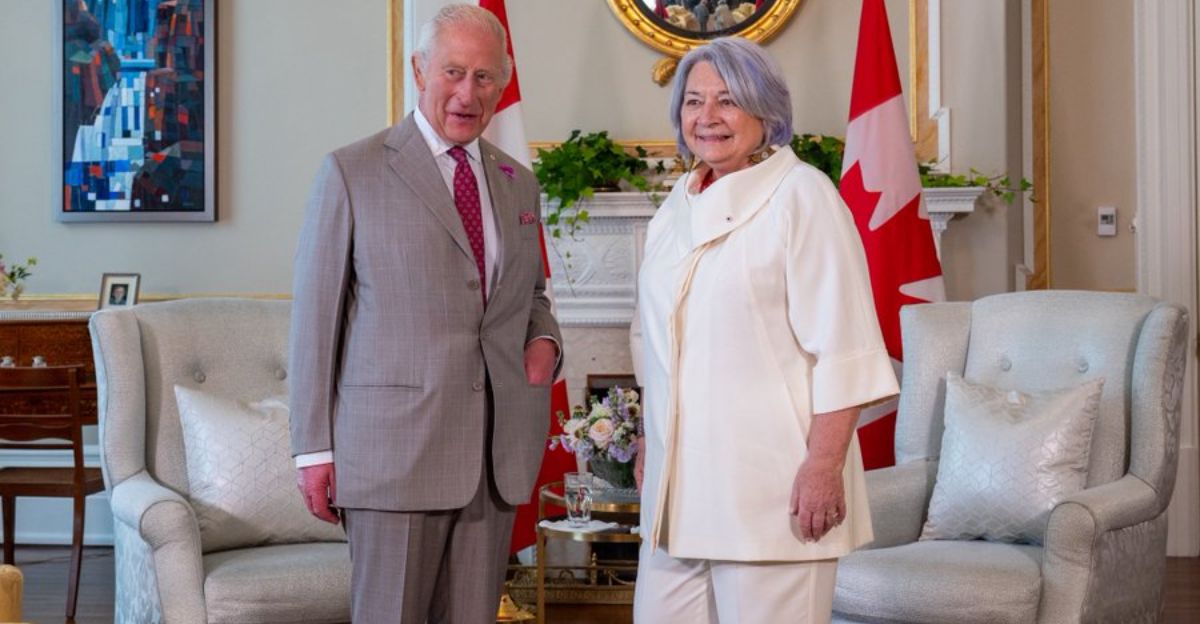
When King Charles III visited Canada in May, he delivered more than royal pleasantries. Addressing Parliament, he declared “Canadians can give themselves far more than any foreign power on any continent can ever take awa. And that, by staying true to Canadian values, Canada can build new alliances and a new economy that serves all Canadians.”
Meanwhile, dissent is rising in the U.S. Forty-two Democratic lawmakers, led by Elizabeth Warren, are demanding probes into Elon Musk’s involvement in Golden Dome. The alliance that once defined North America is fracturing, not just abroad but at home. Traditional institutions, from monarchies to Congress, are beginning to question whether American “protection” now means dominance instead of partnership.
What You Can Do Right Now
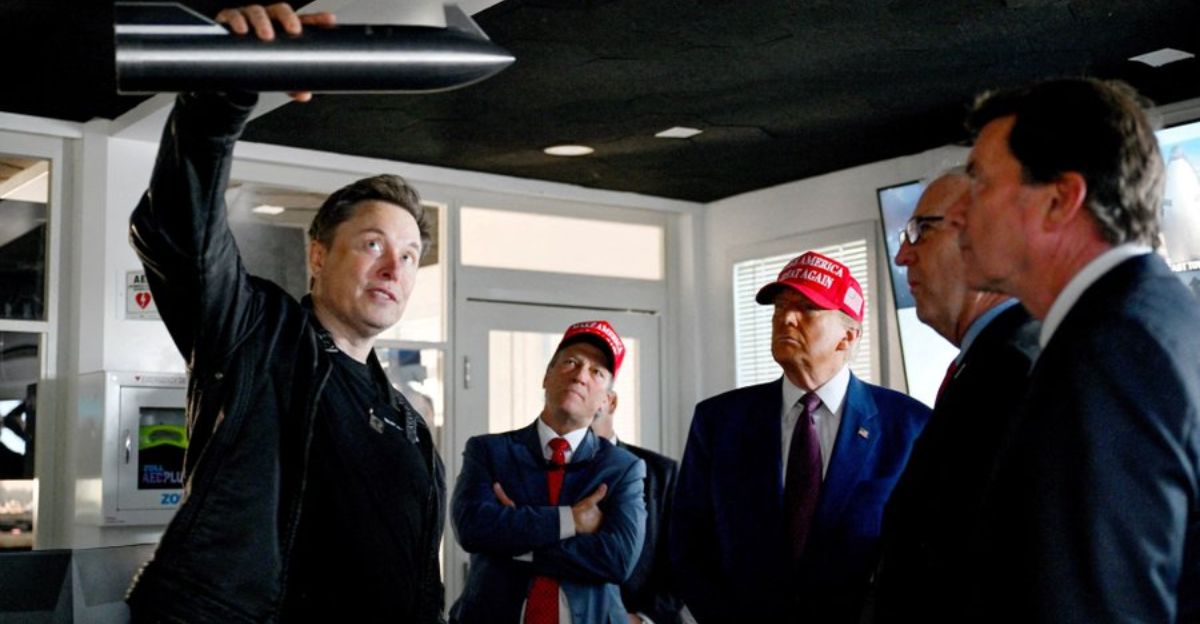
Brace for unstable prices, especially in energy, housing, and autos. If you’re planning major purchases, timing matters more than ever. Investors should monitor Canadian firms shifting to Europe and U.S. companies lobbying to ease tensions, these are signals of what’s coming.
More broadly, recognize this moment as more than a policy spat. It’s a reckoning over whether economic integration can survive political agendas.
The U.S.-Canada trade model was once seen as rock-solid. Now, it’s the testing ground for how nationalism rewrites economic rules. What happens next will shape more than markets, it will shape the future of global cooperation.
Redrawing the Map of Trade and Power
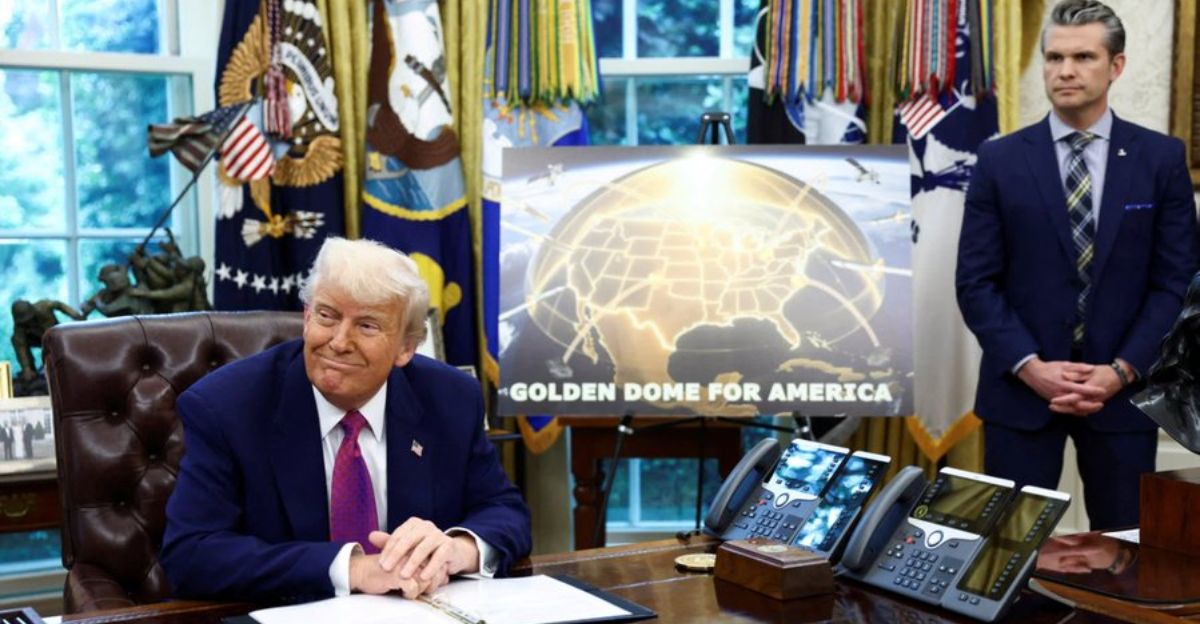
Trump’s ultimatum has laid bare a truth long overlooked: trust, not treaties, holds the global economy together. The Golden Dome pitch was framed as defense policy, but its real message was about control. Smaller nations must now weigh sovereignty against economic security in a world where those two forces no longer align.
Whether Canada stands firm, pays in, or pivots to Europe, the rules have changed. Annexation, once unthinkable in the modern West, is back on the table as an economic tool. The fallout won’t stop at the 49th parallel, it will ripple into how every nation calculates the cost of American dependence.
Discover more trending stories and Follow us to keep inspiration flowing to your feed!

Craving more home and lifestyle inspiration? Hit Follow to keep the creativity flowing, and let us know your thoughts in the comments below!
